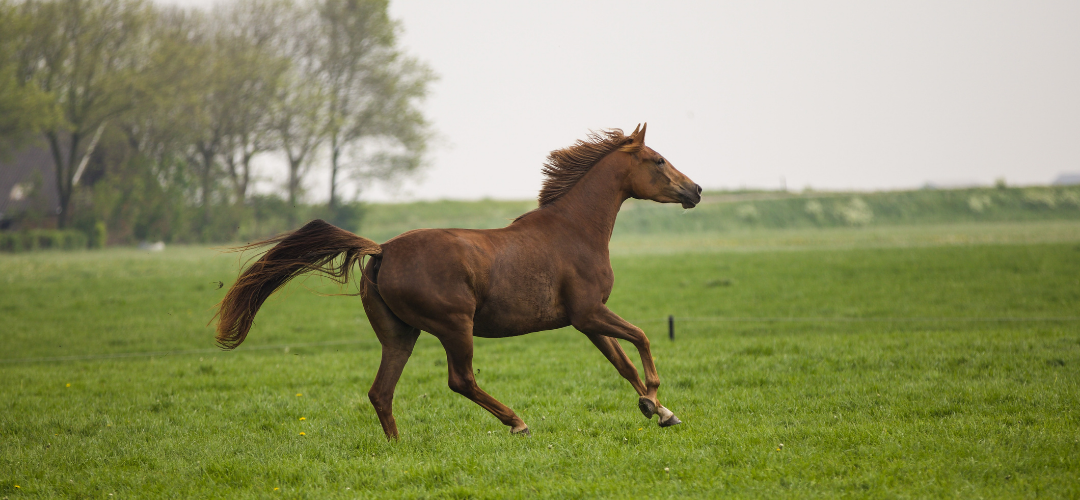
Big feed change in spring
For horses that don't go out to pasture with grass access in winter, the transition from paddock to pasture with fresh, tasty spring grass is quite a change. Not only does your horse have to get used to this, but its intestinal flora also has to cope with a major feed change as well. The damp spring grass full of sugar is very different from the dry roughage that was mainly on the menu in the winter months.
What is the effect of sugar-rich spring grass on the intestinal flora?
Because many horses do not eat grass in winter, the intestinal flora can be disrupted after the first day(s) in the field. Dry roughage is of course different from moist, soft grass. In order to keep the digestive system in balance, it’s important that the transition to grass is made carefully. If the transition from roughage to grass is too sudden, the horse can get diarrhoea. Besides building up the feed slowly and incrementally, giving the horse the supplement
BowelBalance offers good, additional support. This keeps the intestinal flora in balance and supports the digestion in the intestines. Despite a careful transition to grass, the intestinal flora can still be thrown out of balance sometimes.
First aid for colic
(Gas) Colic regularly occurs during the transition to grass. That's why you should always have
Colosan on hand, especially when your horse first goes out to pasture again! Colosan is the first aid for colic. It provides immediate relief and also has an antispasmodic effect.
The power of Colosan
The natural active substances in Colosan positively influence your horse's digestion in many ways. Cinnamon oil, aniseed oil, caraway seed oil and fennel oil are effective in helping with gas and stomach cramps. Chamomile oil has a cleansing and calming effect on the gastrointestinal tract due to its soothing effect on the mucous membranes. Linseed oil has a favourable effect on your horse's digestion and intestinal function. Colosan also contains cod liver oil, which naturally has a lot of vitamin A and is essential for the mucous membrane of the horse's digestive tract.
If colic is suspected, we always recommend calling your vet first and giving Colosan immediately. A pack of Colosan contains a bottle with a syringe which you can use to easily inject it into your horse's mouth. A horse usually recovers quickly after a dose of Colosan. If this is not the case, you can give another dose of Colosan 30 minutes to 2 hours after the first dose. The first effects can be expected within half an hour. If they do not appear or if the situation gets worse? Be sure to call the vet. Do not give Colosan if passage is not (or no longer) possible such as with a twist or rupture of the intestine or stomach.
Colosan also for pregnant mares
Pregnant mares are often susceptible to colic. Colic can also occur if mares have a (new-born) foal at foot. Thankfully, you can give Colosan to a pregnant mare or mare with foal without any concerns.
Restoring balance after colic
Has your horse had colic? After a colic attack you can give your horse extra support with
BowelBalance. By bringing the stomach and intestinal tract back into balance as quickly as possible, your horse will soon be back to its old self.
BowelBalance ensures the maintenance of an optimally functioning gastrointestinal tract. It supports the digestion in the intestines, helps to strengthen the intestinal flora through the prebiotics (fibres from herbs and roots) and probiotics (yeast).